If your company deals with big data, then you must have heard of Hadoop. Hadoop is big data storage and processing technology. It basically consists of two components: namely data storage through HDFS (Hadoop Distributed File System) and data processing (MapReduce programming model). The Hadoop technology scales across several computers or servers present in a Hadoop cluster to perform a variety of big data processing jobs.
Hadoop is used for a range of big data cases, such as real-time streaming, batch processing, and more. Hadoop technology is being developed and maintained by the Apache Software Foundation. It can process and analyse terabytes and petabytes of data, which is too huge for traditional databases to store, query or analyse. Hadoop technology was invented in 2009 and since then, it has been adopted by millions of companies globally. Since 2009, Hadoop has also improved as a technology. The Hadoop ecosystem has grown tremendously and consists of several tools, frameworks and software applications for data storage, cluster computing, Hadoop cluster configuration, business intelligence, data analysis, and more.
A lot of companies providing Hadoop services have sprung up due to the adoption of Hadoop technology by large-scale companies and organizations. The demand for various open-source tools to manage this technology has also grown tremendously across the globe. Today, there are some key technology companies that are pioneering the development of software tools, frameworks and software applications for Hadoop technology. Here, we will take a look at 12 open-source tools for Hadoop.
1. Ambari
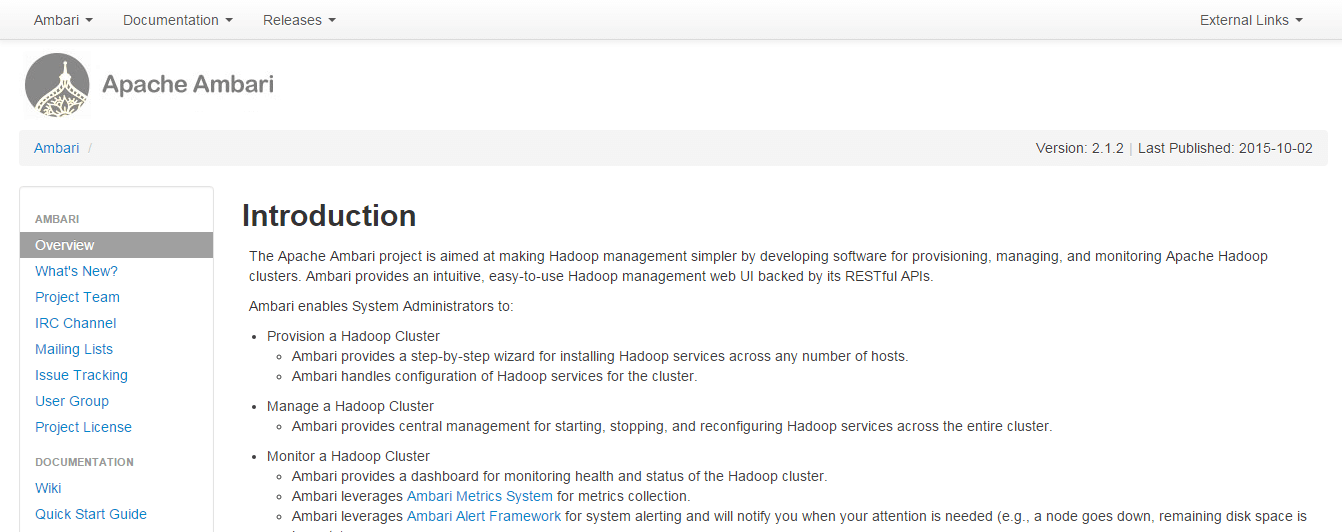
The Apache Ambari project offers a suite of software tools for provisioning, managing and monitoring Apache Hadoop clusters. Ambari offers tools for installing Hadoop services across a range of hosts as well as for configuring Hadoop services for the cluster. It also provides a central management system for activating, deactivating and reconfiguring Hadoop services across the cluster. Ambari leverages Ambari Metrics System for metric collection as well as Ambari Alert Framework for enabling system-related notifications. Currently, it supports a range of operating systems, such as Ubuntu, RHEL, Debian 7, OEL and more.
2. Chukwa

Apache Chukwa is a distributed data collection and processing system. It is used for monitoring large distributed systems and is built on top of Hadoop Distributed File System (HDFS) and MapReduce framework. Chukwa features a powerful toolkit for monitoring and analysing data, which are particularly log files.
3. Apache HBase
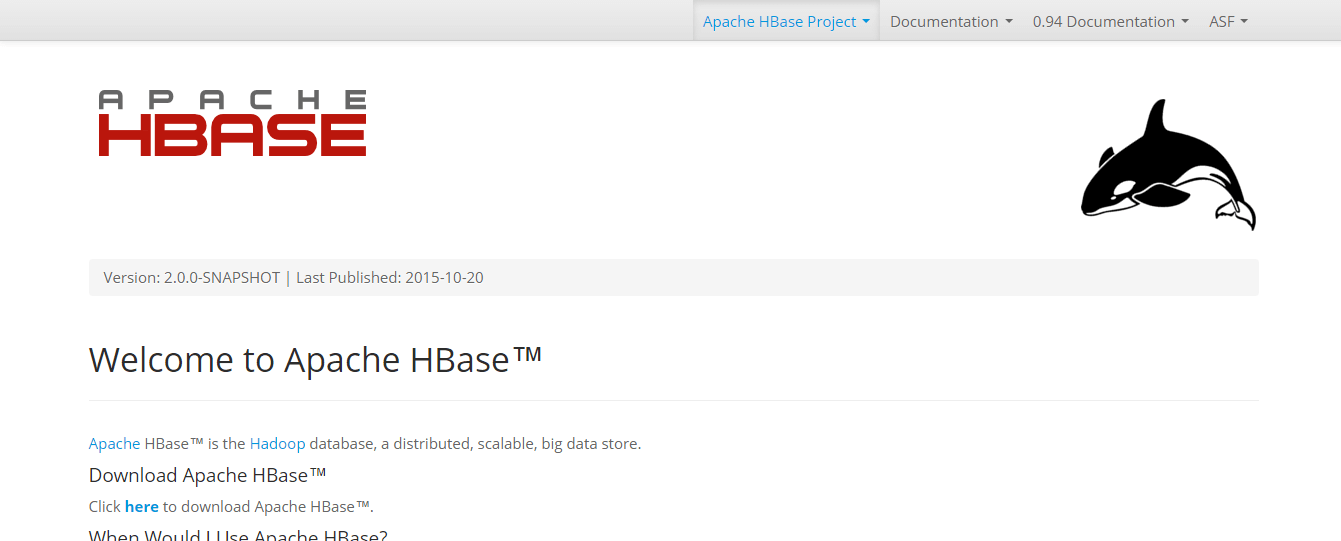
Apache HBase is a distributed big data storage and processing system, built on top of Hadoop and HDFS. It is basically a non-relational database model for Hadoop and allows real-time read/write access to big data. HBase allows hosting large tables containing billions of rows and millions of columns.
4. Mahout
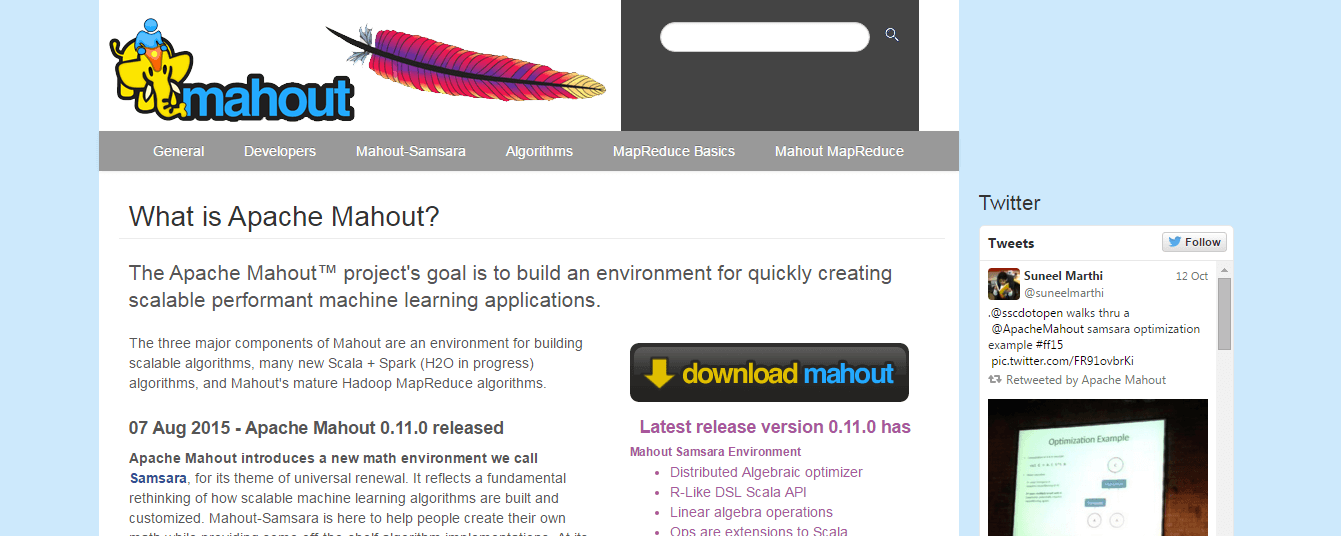
Apache Mahout is a scalable machine learning library with support for Mapreduce and Hadoop. Written in Java, Mahout allows creating machine learning applications. It is useful for Implementing and customizing machine learning algorithms in MapReduce on Hadoop. Apache Mahout also features a math environment called as Mahout Samsara, which has linear Algebraic and statistical operations at its core. Mahout samsara supports Scala programming language and runs on a Spark cluster.
5. Hive
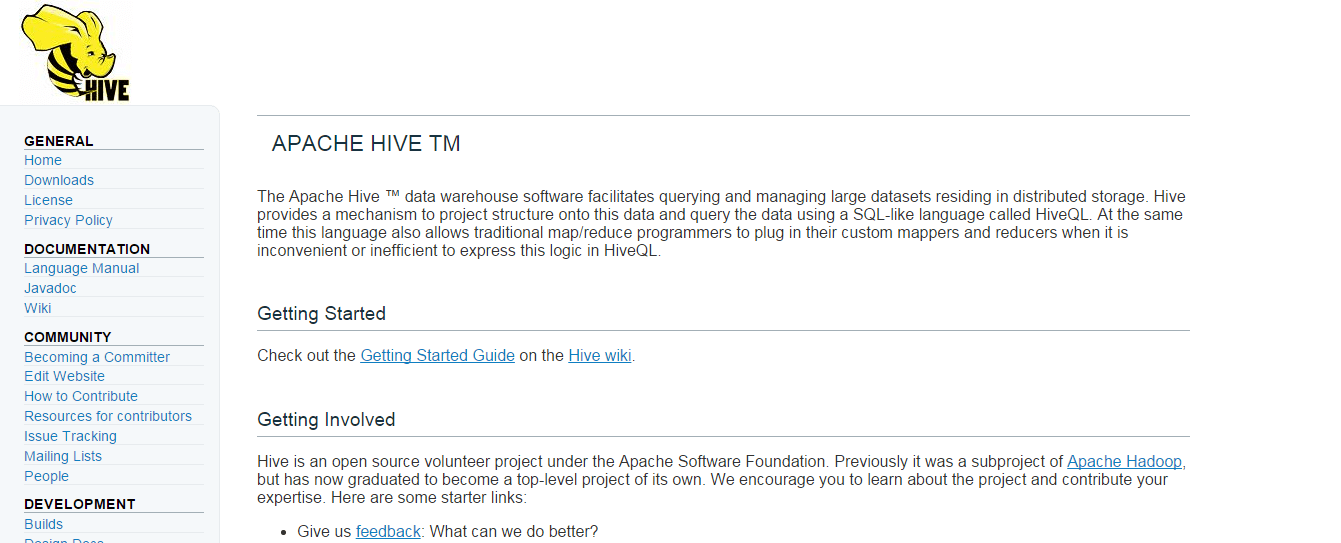
Apache Hive is a software tool for managing and querying large datasets present in distributed storage. Hive allows querying big data using a SQL-like language called as HiveQL but also supports custom MapReduce operations. Hive consists of HCatalog, a table and storage management layer for Hadoop, which enables developers to efficiently read and write data on the grid, using various data-processing tools. Moreover, Hive includes WebHCat, a REST API for HCatalog.
6. Impala
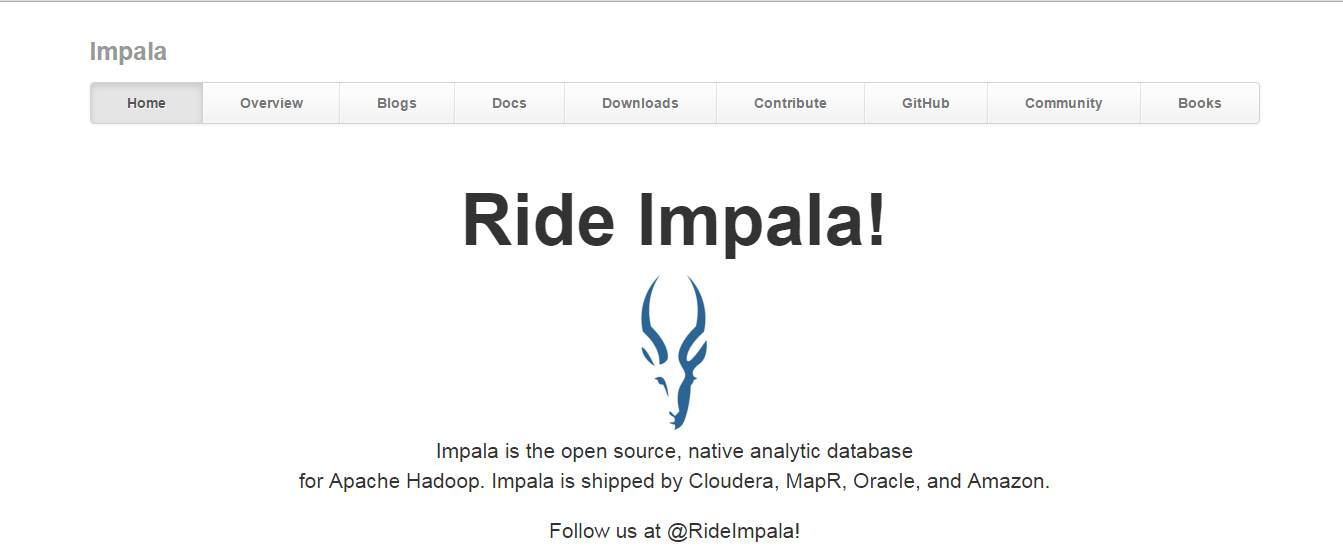
Cloudera, a popular Hadoop services company, is the pioneer of Impala. Impala is a parallel-processing, SQL query engine for data stored in a cluster running Apache Hadoop. It is used for issuing low-latency and high concurrency SQL queries (business intelligence/analytics queries) to data stored in HDFS and Apache HBase without requiring data movement or transformation.
7. Ignite
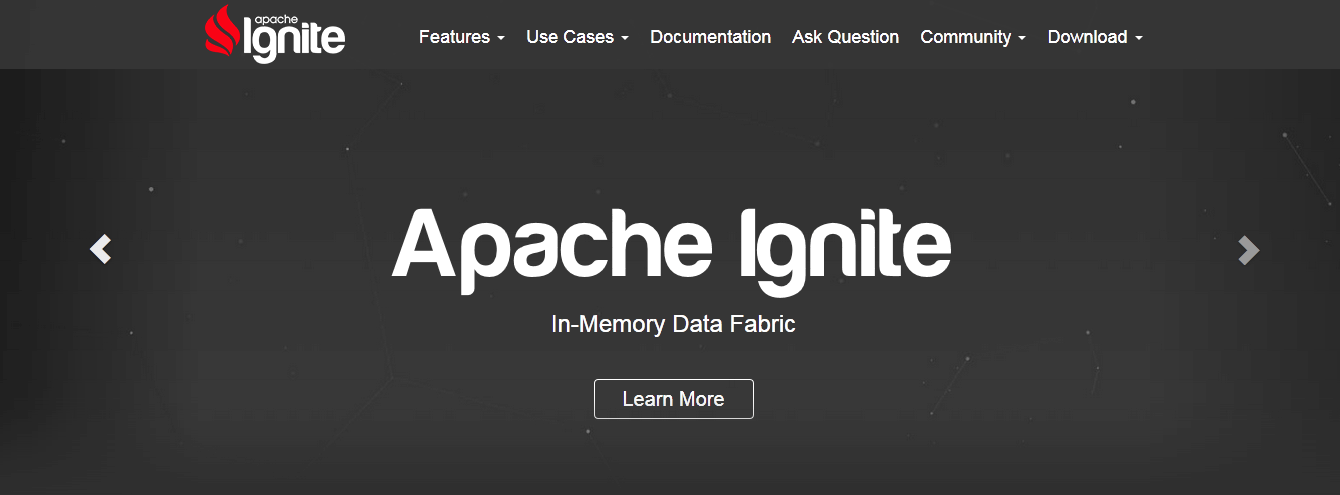
Apache Ignite is a modern, distributed platform for performing in-memory computing use cases. It is widely used for data grid, service grid, streaming, advanced clustering, Hadoop acceleration and more. Apache Ignite supports Scan, SQL and text queries.
8. Spark
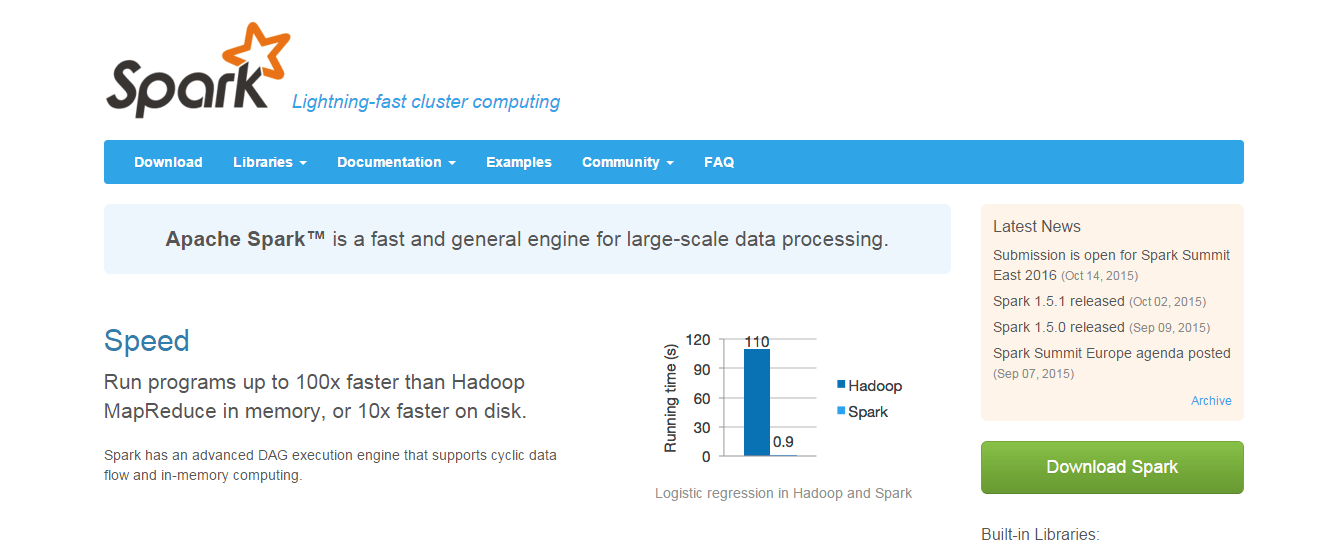
Apache Spark is a cluster computing framework which is Hadoop-compatible but can also be used as a standalone application. It leverages the potential of the Hadoop ecosystem by providing a common platform for dealing with a variety of use case scenarios. It is written in Scala but integrates with any Java virtual machine (JVM) environment. Currently, it supports Scala, Java, SQL, Python and R (in progress) programming languages. Apache Spark processes big data 100 times faster than Hadoop MapReduce when all data is stored in-memory and 10 times faster in case of insufficient memory.
9. Sqoop
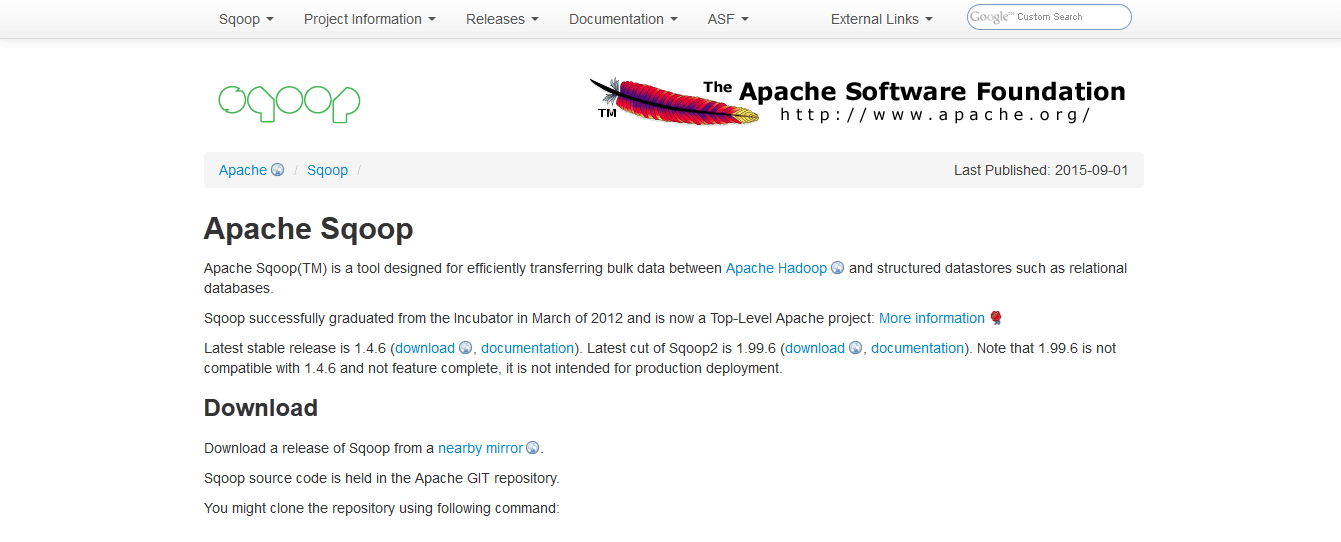
Apache Sqoop is a big data transferring tool between relational databases and Apache Hadoop. It allows importing data from databases (RDBMS) such as MySQL and Oracle into HDFS, transforming the data in Hadoop MapReduce and then exporting the data back in to a RDBMS. Apache Sqoop follows an automated process for using Hadoop MapReduce to import and export the data.
10. Oozie
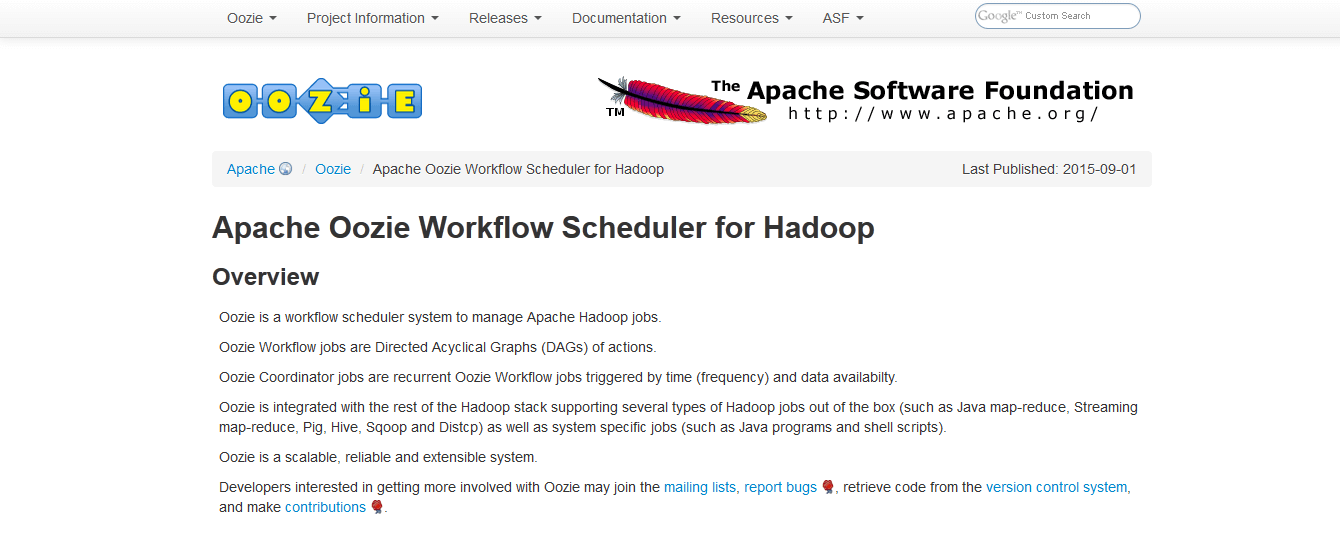
Apache Oozie is a workflow scheduler system for managing Apache Hadoop jobs. Oozie workflow jobs are called as Directed Acyclical Graphs (DAGs) of action. It is also specialized in running recurrent Oozie workflow jobs based on time and data triggers. Oozie integrates with the Hadoop stack and supports various Hadoop jobs, such as streaming MapReduce, Java programs, shell scripts and more.
11. Spago4BD
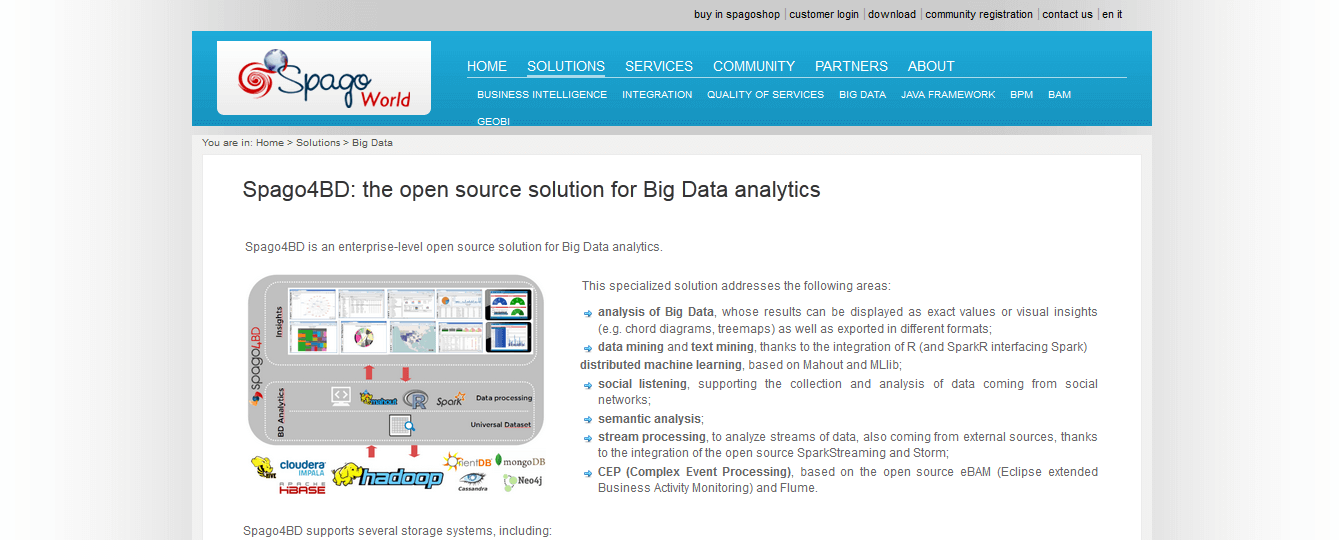
Spago4BD is a Hadoop-compatible, enterprise-level solution for big data analytics. It displays results as exact values or visual insights, such as in the form of tree maps, chord diagrams, reports, charts and more. Moreover, Spago4BD supports data mining based on Mahout and MLlIB. It also offers solutions for stream processing, business intelligence, semantic analysis as well as analysis of data coming from social networking sites.
12. Tez
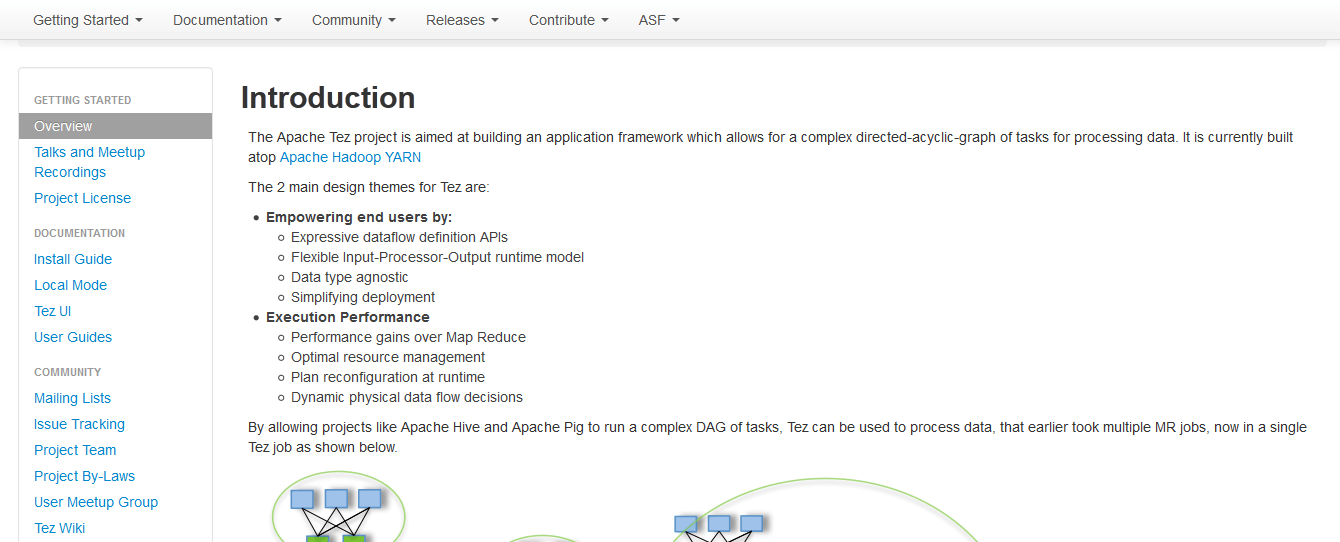
Apache Tez is an advanced software tool that allows developing an application framework for providing a complex directed-acyclic-graph (DAG) of tasks for processing data. It is built on top of Apache Hadoop YARN and allows projects like Apache Hive and Apache Pig to run a complex DAG of tasks.
Also Check: 15 Best ways to learn Hadoop Technology
Conclusion: –
Big data storage and processing is a crucial task in our modern-day business environment. Nearly, every company needs to perform risk or trend analysis based on the vast amount of available statistical data. The findings derived from such analysis are helpful for bringing the right products or services in the market and to make improved business decisions. Hence, it is being estimated that Hadoop technology will be implemented on a large scale in the near future. It is also quite beneficial to learn Hadoop as there are a bunch of options available to learn Hadoop online. You can find several Hadoop online certified training courses.
There are a range of open-source software tools and applications for managing Hadoop technology. If you have some more names to add to the list, then you can do so by writing about them in the comments section below.
